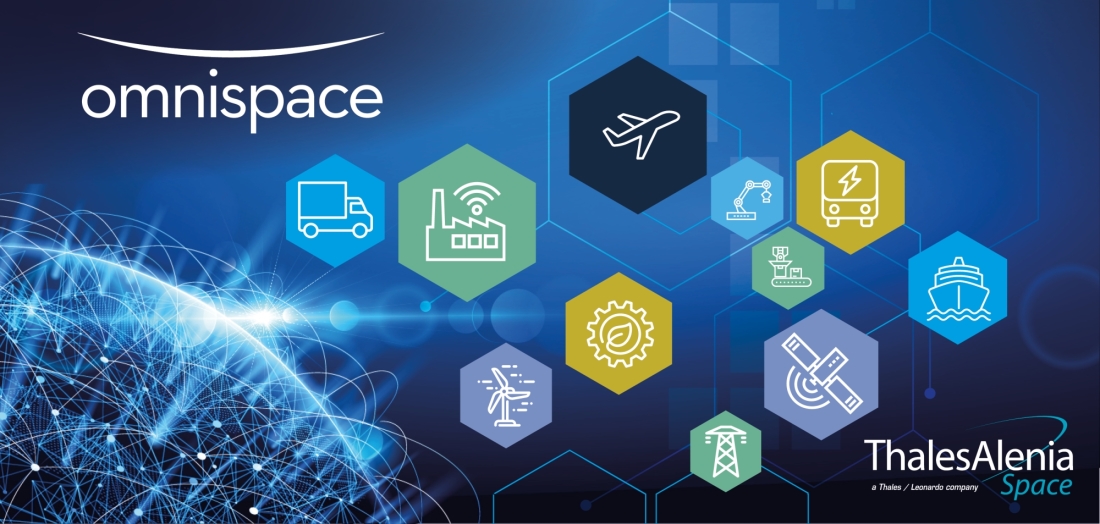Thales Alenia Space bolsters position in the Internet of Things market
On December 18, 2019, a Soyuz rocket lifted off from the Guiana Space Center, Europe’s Spaceport in French Guiana. The launcher was carrying a number of satellites, including the first second-generation COSMO-SkyMed, built by Thales Alenia Space as prime contractor, ANGELS, the first French nanosatellite, and CHEOPS, a space telescope from the European Space Agency, built with a major contribution from Thales Alenia Space.
ANGELS up and running
We’re delighted to announce that the Argos Neo instrument on the ANGELS satellite has passed its in-flight review after completing acceptance testing and calibration. The commissioning of Argos Neo is a milestone in the ANGELS mission. Having completed all checks of the nanosat platform (a cubesat with volume of 12U) and the Argos Neo payload, the ANGELS demonstrator is now operational in orbit.
ANGELS, featuring an Internet of Things (IoT) solution and new-generation native geolocation, will now join the Argos fleet operated by Kineis. This is a French space agency CNES mission coordinated by the company Hemeria, which also supplies the nanosat platform. The Argos Neo payload was developed by Thales Alenia Space working with Syrlinks, a manufacturer of radio-communications equipment and geolocation systems, as the lead subcontractor.
Argos Neo: a miniaturized instrument to address fast-evolving space requirements

Argos Neo is the first in a new generation of Argos instruments, the global benchmark in IoT with native geolocation, designed to study and protect our planet. Thales Alenia Space and Syrlinks rose to the challenge of miniaturizing key components to make the payload compatible with the nanosat size platform used on ANGELS.
Argos Neo weighs only 2 kilos, ten times lighter than the previous generation, and uses three times less energy, while handling the same functions and offering greater capacity. Furthermore, it incorporates various components that enabled the manufacturer to reduce production time and cost. ANGELS was developed, launched and commissioned in less than 24 months. Its successful startup reflects the ability of Thales Alenia Space to miniaturize an extremely complex instrument such as Argos.
From Argos Neo to Kineis

We’re extremely proud of this new instrument, which heralds a new-generation French constellation, Kineis, with 25 nanosatellites designed for the Internet of Things. Thales Alenia Space is system architect for this constellation, which will be operated by Kineis. Within the production consortium, Thales Alenia Space is in charge of making the payload, with Syrlinks as lead subcontractor, while Hemeria is responsible for the platform. The payload comprises two instruments, one for the Internet of Things, the other dedicated to maritime surveillance applications.
Kineis covers a wide range of applications: tracking moving objects (ships of all sizes), natural resources management (detection of fishing zones), contribution to the “blue economy” (the sustainable use of ocean resources), personal safety and security, environmental management, collection of weather data, etc.
The “New Space” approach applied by Kineis complements Europe’s Copernicus program for environmental monitoring, an initiative in which Thales Alenia Space is the leading industrial partner.
Another major step towards New Space

Building on its experience with the ANGELS and Kineis missions, Thales Alenia Space has been chosen by American startup Omnispace to build the first satellites in its new constellation.
“We’re very proud of our selection by Omnispace, which is taking a holistic approach to the design, development and deployment of its new-generation satellite network, dedicated to the Internet of Things,” said Hervé Derrey, President and Chief Executive Officer of Thales Alenia Space. “Our selection confirms Thales Alenia Space’s market leadership as a pivotal industrial partner, and also reflects our expertise in satcom systems dedicated to IoT.”
“[…] Thales Alenia Space is perfectly qualified to support our vision of providing the first 5G network via satellite,” added Ram Viswanathan, President and Chief Executive Officer of Omnispace LLC.

Within the Omnispace industrial consortium, Thales Alenia Space is system prime contractor for both the space and ground segments. The payloads for the first two satellites are being developed under Thales Alenia Space’s responsibility, with Syrlinks as lead subcontractor. NanoAvionics was chosen to build the platforms, and French startup Anywaves will provide the antennas.
With this latest selection, Thales Alenia Space continues to bolster its position in the IoT segment of the New Space market.
Artistic views © CNES - © Kinéis - © Omnispace